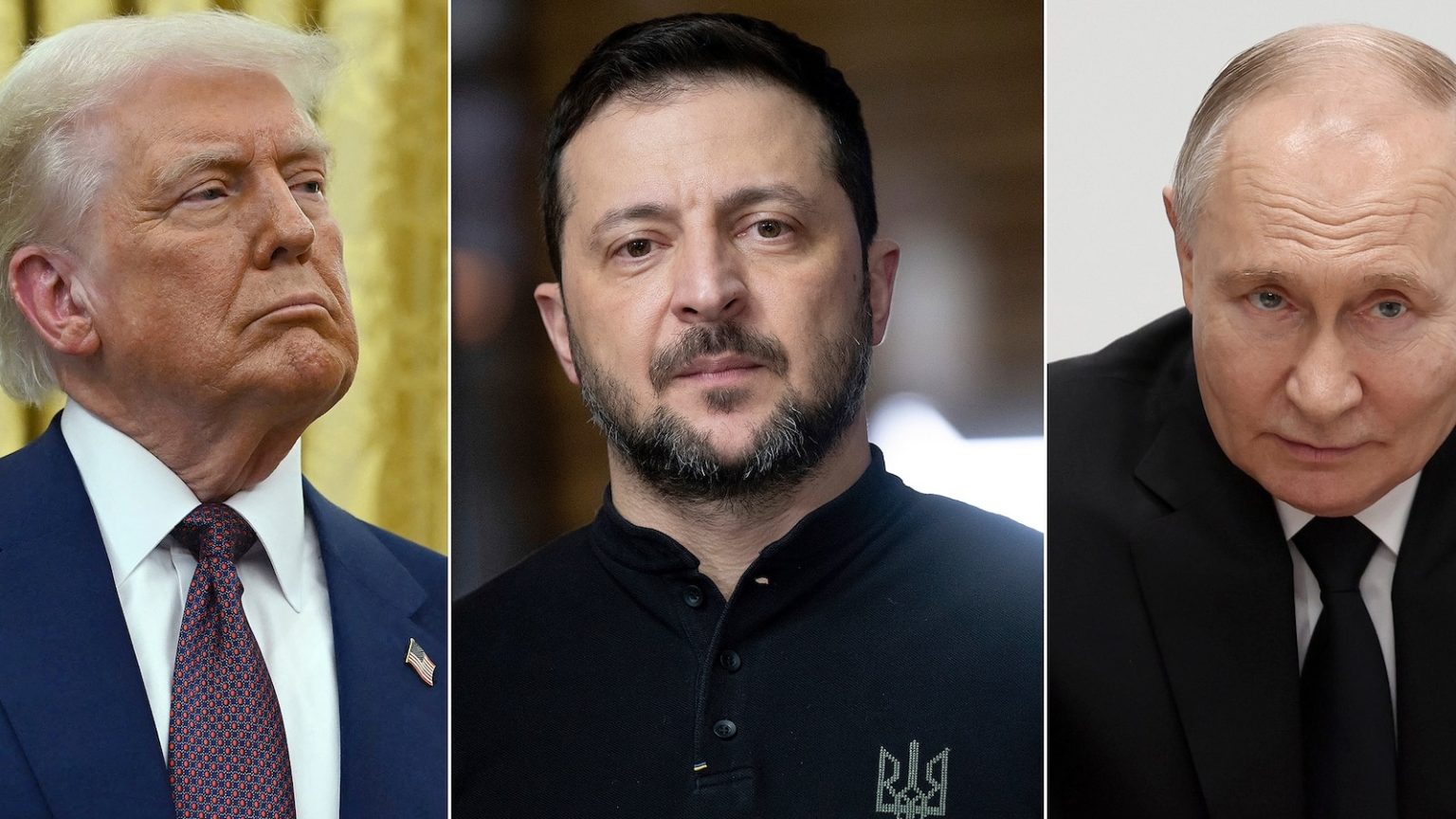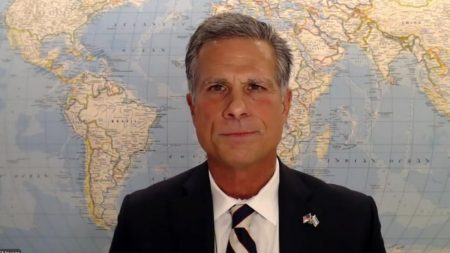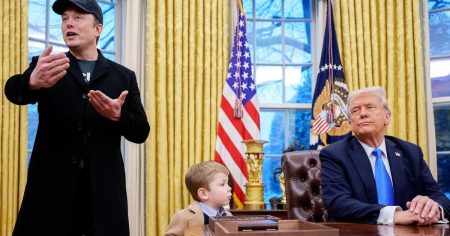The Trump Administration’s Push for Rare Earth Minerals in Ukraine: A High-Stakes Geopolitical Gambit
In a dramatic shift in foreign policy, the Trump administration has intensified its efforts to secure access to Ukraine’s vast reserves of rare earth minerals, a move that has sent shockwaves across the Atlantic and raised concerns about the future of European security. President Donald Trump has been vocal about his desire to strike a deal that would grant the U.S. a significant share of Ukraine’s mineral wealth, a resource critical for advanced technologies, renewable energy, and defense systems. Ukraine’s President Volodymyr Zelenskyy has so far resisted the overtures, but recent signals suggest that a deal may be in the works. While Trump frames the agreement as a way to recoup U.S. investments in Ukraine’s war effort, critics argue that the administration’s tactics risk undermining Ukraine’s sovereignty and destabilizing the region.
A Deal in the Making: Trump’s Negotiating Tactics
President Trump’s public frustration with Zelenskyy has been on full display, with the U.S. leader openly criticizing the Ukrainian president’s negotiating strategy. In a recent radio interview, Trump lambasted Zelenskyy for “negotiating with no cards,” implying that the Ukrainian leader lacks leverage in the talks. The president also expressed disappointment over Treasury Secretary Scott Bessent’s recent trip to Ukraine, calling it a “wasted trip” that failed to secure a deal. Despite the public acrimony, officials from both sides confirm that negotiations are ongoing, with the Trump administration presenting a new proposal to Zelenskyy’s government. Some experts, however, warn that Trump’s tactics—combining public rebukes with behind-the-scenes pressure—may backfire, alienating Ukraine and emboldening Russia.
Geopolitical Implications: A Risky Strategy
The Trump administration’s push for a minerals deal has sparked concerns among European allies, who fear that the U.S. is prioritizing economic interests over Ukraine’s security and sovereignty. Analysts argue that the deal, if struck on terms favorable only to the U.S., could weaken Ukraine’s ability to resist Russian aggression and erode its leverage in future peace talks. Meanwhile, the absence of explicit security guarantees in the initial proposal has raised alarms, with critics accusing the administration of treating Ukraine like a colonial resource extraction site rather than a strategic partner. “Our security aid is not charity—it’s an investment in our own security,” said John Hardie of the Foundation for Defense of Democracies, urging the administration to decouple the minerals deal from security assurances.
Economic and Strategic Interests: A Double-Edged Sword
Not everyone views Trump’s pursuit of Ukraine’s minerals as a mistake. Heidi Crebo-Rediker of the Council on Foreign Relations argues that investing in Ukraine’s natural resources aligns with U.S. strategic interests, as it would strengthen Ukraine’s economy and bolster its resistance to Russian influence. She points to comments made by Senator Lindsey Graham, who emphasized the potential for Ukraine to become a key business partner, with its estimated $10 to $12 trillion in critical mineral assets. Crebo-Rediker contends that a U.S.-Ukraine economic partnership could enhance supply chain resilience, support defense innovation, and counterbalance China’s growing dominance in rare earth minerals. However, she acknowledges that the approach must be carefully calibrated to avoid exploited Ukraine’s resources.
A Broader Geopolitical Vision: Remaking the International Order
Some analysts believe that the Trump administration’s push for a minerals deal is part of a larger geopolitical strategy aimed at remaking the international order. According to Benjamin Jensen of the Center for Strategic and International Studies, the administration is pursuing a “grand bargain” that would simultaneously address arms control, resource access, and cyber competition while undermining Russia’s alliances with China, Iran, and North Korea. Trump has also expressed interest in denuclearization talks with Russia and China, as well as reducing defense spending by both nations. While the vision is ambitious, Jensen warns of the dangers of strategic overconfidence, noting that Russian President Vladimir Putin could exploit any loosening of tensions to rearm and launch new aggression.
Conclusion: A High-Risk, High-Reward Strategy
The Trump administration’s efforts to secure access to Ukraine’s rare earth minerals represent a high-stakes gamble with far-reaching consequences. While the deal could yield significant economic and strategic benefits for the U.S., critics argue that the negotiating tactics and lack of security guarantees risk destabilizing Europe and undermining Ukraine’s sovereignty. As the situation unfolds, one thing is clear: the outcome of these negotiations will shape not only the future of U.S.-Ukraine relations but also the broader geopolitical landscape. Whether Trump’s vision of a “grand bargain” will succeed—or whether it will unravel under the weight of its own ambition—remains to be seen.















